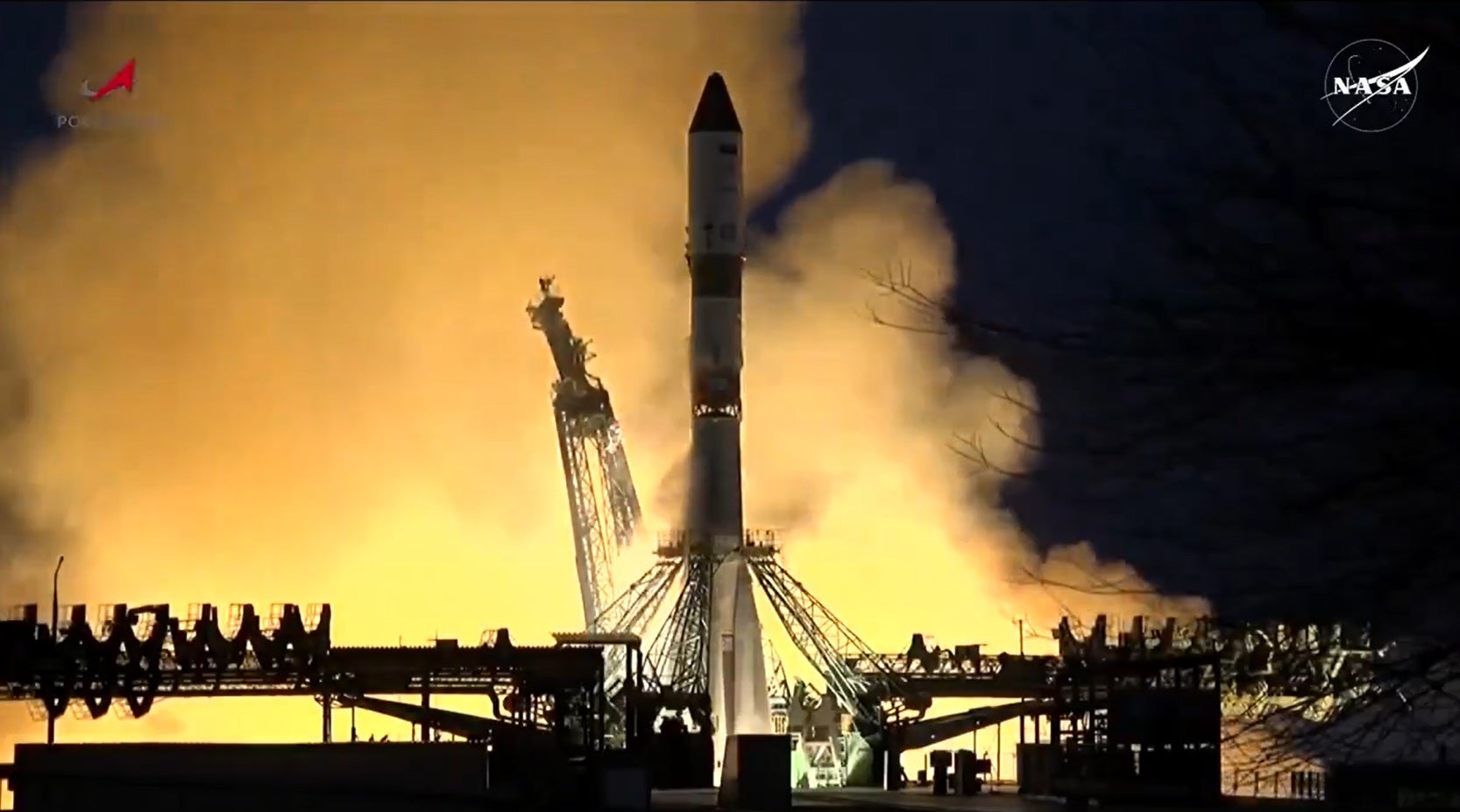An “unexpected odor” is coming out of the Russian spacecraft that docked to the International Space Station last weekend.
NASA said Sunday that the unpiloted Progress 90 resupply mission had reached the orbiting laboratory’s Russian Poisk module Saturday after launching on a Soyuz rocket from Kazakhstan on Thursday morning.
“After opening the Progress spacecraft’s hatch, the Roscosmos cosmonauts noticed an unexpected odor and observed small droplets, prompting the crew to close the Poisk hatch to the rest of the Russian segment,” the agency said in a social media post.
It did not describe what kind of odor was emanating from the spacecraft, but Russian space news outlet Russianspaceweb.com reported that the crew had described it as “toxic.”
The source of the smell was not immediately clear, but previous Russian vehicles have leaked in space.
The space station’s air scrubbers – which are used to remove carbon dioxide and other contaminants from the air – and contaminant sensors monitored the station’s atmosphere after the observation.
The air quality inside the space station was determined to be at normal levels.
“There are no concerns for the crew, and as of Sunday afternoon, the crew is working to open the hatch between Poisk and Progress while all other space station operations are proceeding as planned,” NASA said.
The Progress mission delivered about three tons of food, fuel and supplies for the Expedition 72 crew on board the space station.
The Roscosmos spacecraft will be docked for six months prior to its departure for a re-entry into Earth’s atmosphere to dispose of trash loaded by the crew.
The space station’s crew includes Roscosmos’ Aleksandr Gorbunov, Ivan Vagner and Alexey Ovchinin. NASA’s Pettit, Nick Hague, Suni Williams and Butch Wilmore are also a part of Expedition 72. Their journey ends in Spring 2025.
Russia plans to continue operations at the space station through at least 2028, and international operations will continue through 2030 before it is deorbited.
European astronaut Samantha Cristoforetti has said there’s also a “very peculiar odor” on the space station itself.

While space is an airless vacuum, it is full of molecules that have odors when humans smell them in safe conditions. After returning from a spacewalk, astronauts have described unique scents.
One is a strong, metallic smell. Some have described it like gunpowder, welding fumes, seared steak or “the mixture between walnuts and the brake pads of [a] motorbike.”
“It is hard to describe this smell; it is definitely not the olfactory equivalent of describing the palette sensations of some new food that ‘tastes like chicken.’ The best description I can come up with is metallic; a rather pleasant sweet metallic sensation,” NASA astronaut Don Pettit said after a mission in 2003. “It reminded me of my college summers where I labored for many hours with an arc welding torch repairing heavy equipment for a small logging outfit. It reminded me of pleasant sweet-smelling welding fumes. That is the smell of space.”





